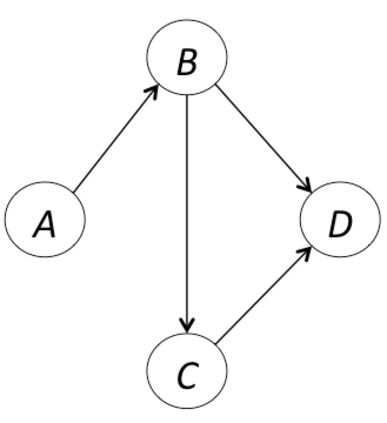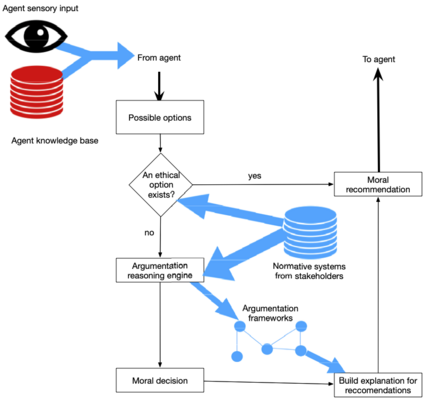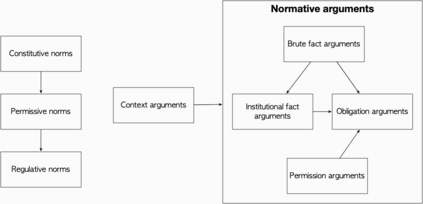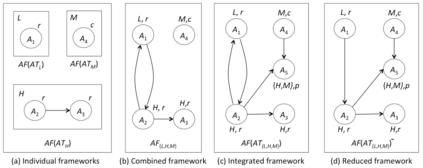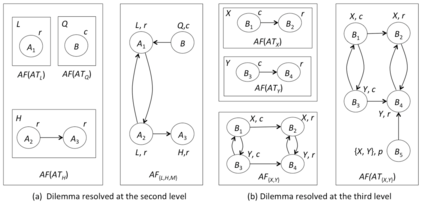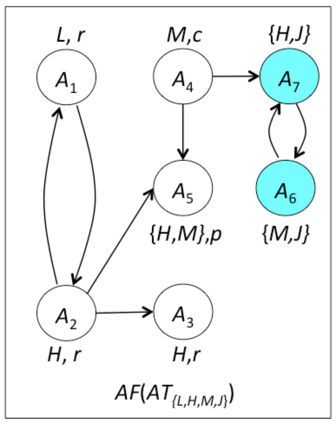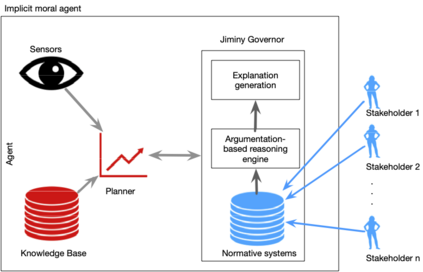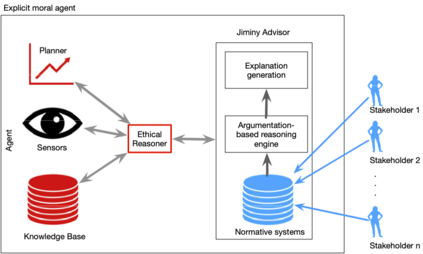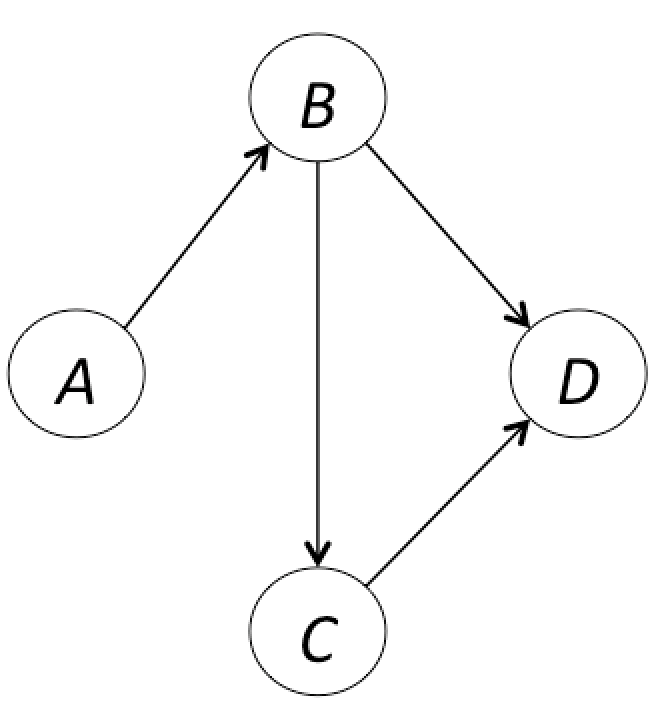An autonomous system is constructed by a manufacturer, operates in a society subject to norms and laws, and is interacting with end users. All of these actors are stakeholders affected by the behavior of the autonomous system. We address the challenge of how the ethical views of such stakeholders can be integrated in the behavior of the autonomous system. We propose an ethical recommendation component, which we call Jiminy, that uses techniques from normative systems and formal argumentation to reach moral agreements among stakeholders. Jiminy represents the ethical views of each stakeholder by using normative systems, and has three ways of resolving moral dilemmas involving the opinions of the stakeholders. First, Jiminy considers how the arguments of the stakeholders relate to one another, which may already resolve the dilemma. Secondly, Jiminy combines the normative systems of the stakeholders such that the combined expertise of the stakeholders may resolve the dilemma. Thirdly, and only if these two other methods have failed, Jiminy uses context-sensitive rules to decide which of the stakeholders take preference. At the abstract level, these three methods are characterized by the addition of arguments, the addition of attacks among arguments, and the removal of attacks among arguments. We show how Jiminy can be used not only for ethical reasoning and collaborative decision making, but also for providing explanations about ethical behavior.
翻译:自主系统是由制造商建造的,在受规范和法律制约的社会中运作,并与终端用户互动。所有这些行为者都是受自主系统行为影响的利益攸关方。我们应对如何将此类利益攸关方的道德观点纳入自主系统行为的挑战。我们提议一个道德建议部分,我们称之为Jimini,它使用规范系统的技术以及正式论证,在利益攸关方之间达成道德协议。Jimini通过使用规范系统代表每个利益攸关方的道德观点,并有三种方式解决涉及利益攸关方观点的道德困境。首先,Jimini考虑利益攸关方的论点如何相互关联,这可能会解决这一难题。第二,Jimini将利益攸关方的规范系统结合起来,使利益攸关方的专业知识能够解决这一难题。第三,只有这两种方法都失败了,Jimini才使用对背景敏感的规则来决定哪些利益攸关方偏好。在抽象层面上,这三种方法的特点是增加了论据,在争论中增加了攻击,在争论中消除了攻击。我们展示了Jimini如何使用道德解释,而不是为道德推理和决定提供合作行为。我们展示了如何使用Jimini的行为。

